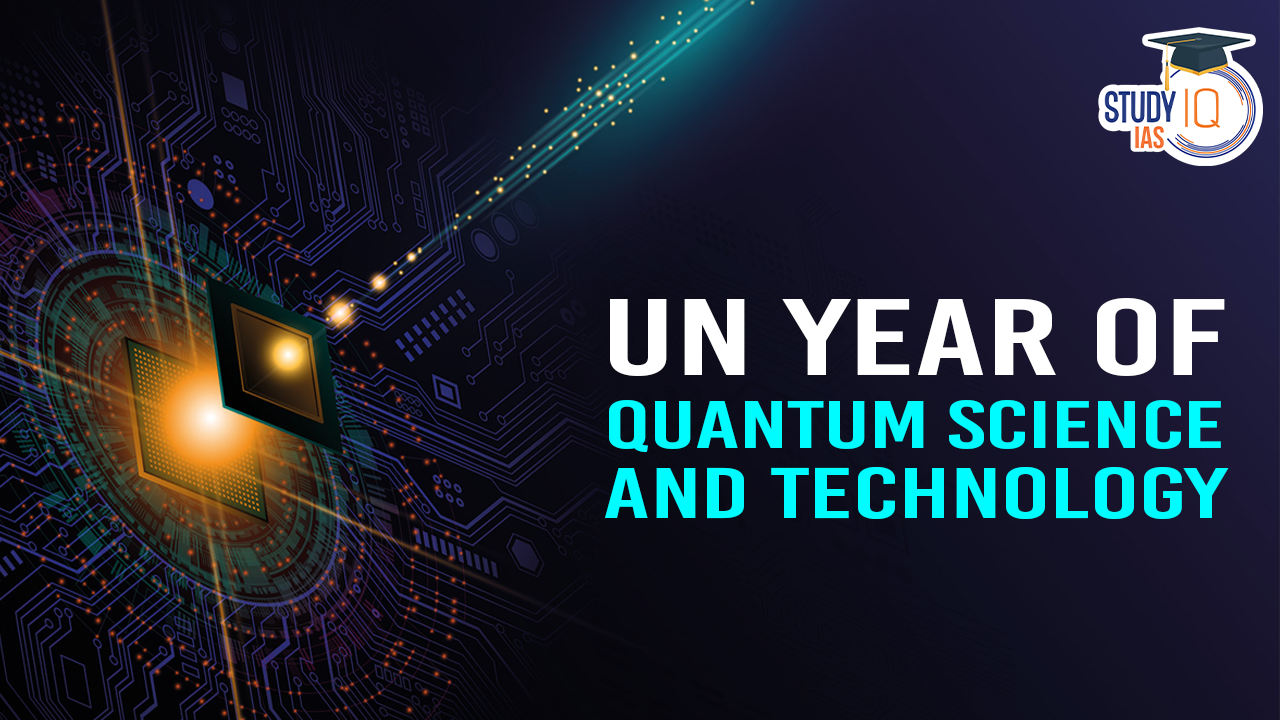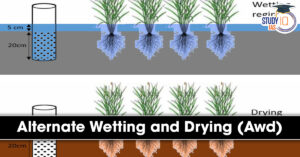Table of Contents
Context: The United Nations will declare the year 2025 as the ‘International Year of Quantum Science and Technology’.
Quantum Technology
- It utilises principles from Quantum mechanics to understand fundamental particles like atoms and subatomic particles.
- Exploits unique behaviours such as superposition and entanglement to advance technologies.
- Quantum technology is a major focus of research for both government bodies and private entities..
Quantum Mechanics Paradigm
- Quantum Superposition: Particles can exist simultaneously in multiple quantum states.
- Particles exhibit wave-like behaviours, akin to overlapping ripples in a pond.
- Quantum Entanglement: Describes a phenomenon where particles become interconnected and cannot be described independently.
- Changes to one entangled particle affect its pair instantaneously, regardless of distance.
- Quantum Algorithms: Designed to leverage entanglement to solve complex problems more efficiently.
- Quantum Teleportation: Involves transferring quantum states across long distances without physically moving the particles.
- Quantum Interference: Occurs when multiple waves superimpose to produce a stronger (constructive) or weaker (destructive) wave.
- Constructive interference is used to amplify preferred outcomes from many potential results.
- Observance: The process of observing and measuring quantum states, which leads to the collapse of quantum properties, settling them into one of the possible states.
Applications of Quantum Technology
- Quantum Communication: Utilises quantum physics properties for enhanced security and long-distance communication.
- Quantum key distribution (QKD) employs qubits for encrypting keys, making them harder to intercept compared to classical binary bits.
- Qubits are extremely sensitive, and any interference or observation causes them to collapse, enhancing security.
- Quantum Simulation: Used to understand large quantum systems or to solve complex problems through quantum simulations.
- Simulating a quantum system with another quantum system allows for easier control and study.
- Quantum simulators inherently understand quantum mechanics, simplifying processes.
- Useful in studying protein folding and potential treatments for diseases like Alzheimer’s and Parkinson’s.
- Essential for developing high-temperature superconductors.
- Quantum Computation: Employs quantum physics to achieve computation speeds unattainable with classical computers.
- Uses “qubits” instead of “bits,” with superposition allowing simultaneous multiple operations, significantly speeding up processes.
- Quantum Sensing and Metrology: Advanced sensor technology that detects changes in motion, and electric and magnetic fields at the atomic level.
- Enables highly precise measurements: Applications include healthcare, medical research, earth observation, early detection of natural calamities, environmental monitoring, construction, energy, navigation, and defence.
- Quantum Materials:
- Used in the development of solar cells and energy-efficient devices like batteries and diagnostic tools in healthcare.
- Examples include fluorescent quantum dots for multicolour bioimaging and labelling specific cellular proteins.
Advantages of Quantum Technology
- Increased Computing Power: Quantum computers operate significantly faster than current computers and can solve complex problems that are presently unmanageable.
- Improved Security: Quantum encryption methods, based on quantum mechanics principles, offer substantially higher security compared to traditional encryption techniques.
- Faster Communication: Quantum communication networks enable quicker and more secure information transmission, potentially leading to unhackable communications.
- Enhanced AI: Quantum machine learning algorithms could improve the efficiency and accuracy of training Artificial Intelligence models.
- Better Sensing and Measurement: Quantum sensors are highly sensitive to environmental changes, beneficial in fields like medical diagnostics, environmental monitoring, and geological exploration.
Disadvantages of Quantum Technology
- High Costs: Requires specialised equipment and materials, making it more expensive than traditional technologies.
- Limited Applications: Currently, quantum technology is practical for niche applications such as cryptography, quantum computing, and quantum communications only.
- Environmental Sensitivity: Extremely sensitive to environmental factors like temperature fluctuations, magnetic fields, and vibrations, which can disrupt quantum properties and affect calculations.
- Control Challenges: Difficult to control and manipulate quantum systems, posing challenges in management and operation.
- Unpredictable AI Outcomes: Quantum-powered AI systems may produce unexpected or difficult-to-explain results due to their operations based on fundamentally different principles from classical computing.
Quantum Technologies in India
National Quantum Mission
- Launched in 2023 to foster scientific and industrial research in Quantum Technology (QT) and Applications (QTA).
- Aims to establish a vibrant ecosystem for QT-led economic growth and position India as a leader in QTA.
- Objectives of the Mission:
- Develop quantum computers with 50-1000 qubits within eight years using superconducting and photonic technology.
- Implement secure satellite-based quantum communications across ground stations over a 2000 km range within India.
- Establish secure long-distance quantum communications internationally.
- Set up inter-city quantum key distribution networks and multi-node Quantum networks over a 2000 km range.
- Focus Areas:
- Development of high-sensitivity magnetometers, atomic clocks, and atomic systems for precision in timing, communications, and navigation.
- Design and synthesis of quantum materials like superconductors, topological materials, and innovative semiconductor structures.
Other Steps
- Thematic Hubs (T-Hubs): To be established in top academic and national institutes, focusing on quantum computing, communication, sensing, metrology, and materials/devices.
- Quantum Research Facilities: The Indian Army established a Quantum Lab at the Military College of Telecommunication Engineering in Madhya Pradesh for advanced research and training in quantum technologies.
- QuEST Initiative: Launched by the Department of Science and Technology to develop research facilities in quantum technology.
- QSimToolkit: An indigenously developed toolkit designed to aid the learning and understanding of practical aspects of Quantum Computers for researchers and students.
- Provides a platform for acquiring skills in Quantum Code and designing real quantum hardware.
- Centre for Development of Telematics (C-DOT): A leading telecom research and development organisation in India, developing products in Quantum Key Distribution (QKD) and continuing research in this field.


 Defence Acquisition Council (DAC): Role,...
Defence Acquisition Council (DAC): Role,...
 Alternate Wetting and Drying (AWD): A Cl...
Alternate Wetting and Drying (AWD): A Cl...
 Makaravilakku Festival: Significance, Ri...
Makaravilakku Festival: Significance, Ri...

























